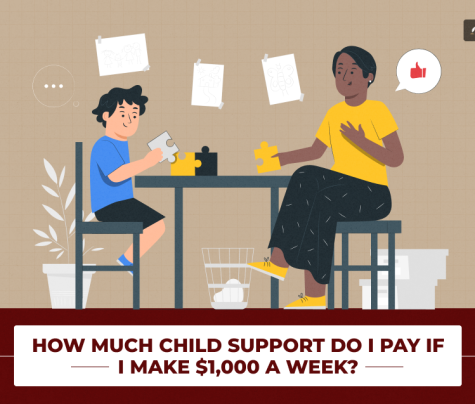
When it comes to marriage, prenuptial agreements often spark a lot of debates. Are they truly necessary, or are they just a way to show off wealth and power?
A prenuptial agreement, what you commonly call a prenup, is a legal contract that a couple signs before marriage. This document outlines how assets and debts will be divided in the event of a divorce.
While some view prenups as unromantic or a sign of distrust, others see them as a practical step to protect individual interests.
In today’s world, where financial independence and personal assets are more common, prenups are becoming increasingly popular.
They can provide clarity and peace of mind, ensuring that both parties are on the same page regarding financial matters. This can be especially important for individuals with significant assets, business owners, or those entering a second marriage.
Moreover, a prenup can help avoid future lengthy and costly legal battles. By clearly defining the terms of asset division, couples can prevent misunderstandings and conflicts.
Therefore, a prenuptial agreement is not just about protecting wealth; it’s about fostering open communication and setting realistic expectations for the future. However, to navigate this nuanced terrain, it is advisable to consult with a family lawyer, who can provide expert guidance and ensure that your financial interests are safeguarded with precision.
So, is it really important or just a show? Let’s dive deeper to find out.
Understanding Prenuptial Agreements
A prenuptial agreement, often colloquially known as a “prenup,” is a legal contract a couple creates before marriage. Moreover, it serves as a proactive measure to establish guidelines and safeguards for the financial aspects of their relationship.
Although people commonly associate these agreements with individuals of substantial wealth, they are not exclusive to this demographic.
However, couples with more modest incomes also opt for prenuptial agreements. This helps protect their interests as they embark on their marital journey.
At its core, a prenup functions as a financial blueprint for the couple’s union. It goes beyond the mere formality of marriage.
Besides, prenups also address the intricate details of their financial lives, seeking to ensure clarity and fairness in case the marriage encounters challenges, ultimately leading to dissolution or divorce.
One key aspect of a prenuptial agreement is the comprehensive cataloging of the assets and liabilities held by each party when entering matrimony. This meticulous inventory covers a wide range of financial components.
However, they are not limited to properties, investments, bank accounts, debts, and other financial holdings.
The primary objective of this detailed asset and liability inventory is to outline how these possessions will be treated and divided should the marriage face the unfortunate possibility of ending.
Moreover, in essence, the prenup sets forth a predefined roadmap for the distribution of assets and allocation of financial responsibilities in the event of a divorce or the dissolution of the marriage.
This legal document can provide both parties a sense of security and certainty, as it mitigates potential disputes and uncertainties regarding financial matters during a tumultuous period.
Varieties Of Prenuptial Agreements
The most prevalent type of prenuptial agreement is crafted before the wedding ceremony. Both parties assess the terms and decide whether to sign based on their commitment to the marriage.
A “postnuptial,” “postmarital,” or “marital” agreement is an agreement that a couple decides to draft after getting married. The purpose remains the same, except that the couple is already married.
An effective prenuptial agreement encompasses various aspects relevant to both parties, such as:
- Clear delineation of property and financial assets.
- Handling property and children from prior unions.
- Distribution of assets upon death.
- Management of investments.
- Ownership and handling of retirement benefits.
- Joint financial matters and bank accounts.
- Separation of business interests in the event of a divorce.
- Management of credit card debt and other financial obligations.
- Provision for mediation as an alternative to divorce.
However, the inclusion of specific clauses in a prenup varies by state due to differing legal regulations.
State-to-State Variations in Prenup Rules
Prenuptial agreements aren’t created equal across the United States. While the basic concept of a prenup is similar nationwide, there are significant state-to-state variations in the laws governing them.
For instance, some states follow the Uniform Premarital Agreement Act (UPAA), which provides a standardized set of rules for prenups. However, not all states have adopted this act, leading to differences in handling prenups.
In states like California and Texas, prenups must be written, and both parties must sign it to make it enforceable. Additionally, both parties must fully disclose their assets and debts, and the agreement must be fair and reasonable.
In contrast, states like New York have more stringent requirements. For a prenup to be valid in New York, it must be acknowledged by a notary public. Moreover, if a prenup is unconscionable or one party was coerced into signing it, the courts may invalidate it.
Some states allow prenups to include spousal support waivers, while others, like California, may scrutinize such waivers more closely.
Here are some key differences to consider:
- Validity Requirements: Some states have stricter requirements for prenuptial agreements than others. For example, some states require that both parties have independent legal counsel, while others do not.
- Unconscionability: This legal doctrine allows a court to invalidate a contract if it is deemed unfair or oppressive. States have varying standards for determining whether a prenup is unconscionable.
- Child support and Alimony: Some states may limit the ability of a prenup to waive child support or alimony obligations. This is because child support and alimony are generally non-negotiable.
- Spousal Property Rights: State laws vary regarding the rights of spouses to property acquired during the marriage. A prenup can help clarify these rights, but it may not be able to override certain state laws.
Advantages Of A Prenuptial Agreement
Couples have numerous reasons to opt for prenuptial agreements, with protecting individual wealth being just one of the benefits. Other advantages include:
- Safeguarding assets for inheritance to children from prior relationships.
- Clarifying financial rights and obligations after divorce.
- Streamlining the legal process in case of divorce.
- Shielding one spouse from the debts of the other.
- Reducing court involvement in divorce proceedings.
- Defining jointly held and newly acquired property during the marriage.
- Reducing the financial burden of divorce.
Who Needs a Prenup?
Prenups aren’t just for the rich and famous. While they were once the symbol of status and mistrust, they’re becoming more common among couples of all backgrounds.
So, who should consider a prenup?
Couples With Significant Assets or Debts
If you or your partner own a business or a property or have substantial savings, a prenup can help protect your assets in case of divorce.
For example, if you own a family business that has been in your family for generations, a prenup can help ensure that it stays in the family even if your marriage ends.
Couples With Children from Previous Relationships
If either of you has children, a prenup can help ensure their financial security and inheritance rights.
For instance, if you have children from a previous marriage and your new partner also has children, a prenup can clarify how you will distribute your assets in divorce. This ensures that your children from previous relationships are not in a disadvantageous position.
Couples With a Large Age Gap or Different Cultural Backgrounds
These factors can make it more likely that one partner will inherit more than the other. If there is a significant age gap between you and your partner, a prenup can help protect the younger partner in case of divorce, especially if the older partner has a substantial estate.
Similarly, if you and your partner come from different cultural backgrounds, a prenup can help address cultural differences or expectations regarding property and inheritance.
Couples With a History of Financial Instability or Debt
A prenup can help protect you from your partner’s debts in case of divorce. If your partner has a history of financial problems or debt, a prenup can help ensure that your assets are protected in case of divorce.
What Happens When You DON’T Get a Prenup?
Skipping a prenuptial agreement might seem like a good idea initially, but it can lead to complications.
Without a prenup, the division of assets and debts during a divorce is left to state laws. This means that everything you own, from your savings to your prized possessions, could be split according to the rules of your jurisdiction.
In many states, this could result in a 50/50 split of marital property, regardless of who earned more or who owned what before the marriage. This can be particularly challenging if one partner has significantly more assets or if the marriage involves family heirlooms.
Additionally, any debts incurred during the marriage are typically shared equally, which can be a burden if one partner has accumulated more debt.
Moreover, without a prenup, dividing assets can become lengthy and contentious.
Legal battles over property and finances can be emotionally draining and financially costly. A prenup helps avoid these disputes by clearly outlining each partner’s rights and responsibilities.
Not having a prenup means leaving your financial future to chance and the courts. It’s about protecting your interests and ensuring a smoother, less stressful process if things don’t work out.
Other Essentials of a Prenuptial Agreement You Should Know About
Despite concerns about the romance of signing a prenup, it is a robust tool for protecting financial interests long after marriage.
It details personal assets and debts brought into the marriage, defines marital property, and outlines post-divorce ownership.
Prenuptial agreements can also help navigate divorce laws specific to each state, addressing issues arising from community property or non-community property statutes.
Limitations of a Prenuptial Agreement
Prenups do not influence child custody or support arrangements. The divorce proceedings and court decisions are what determine them. They solely pertain to personal property and financial assets.
In cases where a prenup oversteps legal boundaries, a judge may disregard specific clauses while focusing on allowable provisions.
Cost of a Prenup
The cost of a prenuptial agreement can range from $2,000 to $6,000 per individual, depending on the law firm. While some states permit self-drafted prenups, they may not hold up in court without legal expertise.
It’s essential to weigh this initial cost against the potential future losses for those seeking to safeguard their assets after marriage.
Don’t Wait to Get Your Prenup!
Whether a prenup becomes a public record depends on the situation. Many couples opt to keep it private due to the personal nature of the information it contains.
However, in certain circumstances, making the prenup public can protect one spouse from the other’s debts accrued during the marriage. State-specific divorce laws may influence this decision, but marriage and divorce records are typically public.
Regardless of confidentiality, storing the agreement securely, such as in a safe deposit box, with other important documents is advisable.
Read Also:
- What is a High Net Worth Divorce? Everything You Must Know
- Understanding the Key Roles of a Divorce Lawyer in a Divorce Case
- What Does A Debt Relief Lawyer Do? Top 10 Best Debt Relief Lawyers in the US











0 Reply
No comments yet.